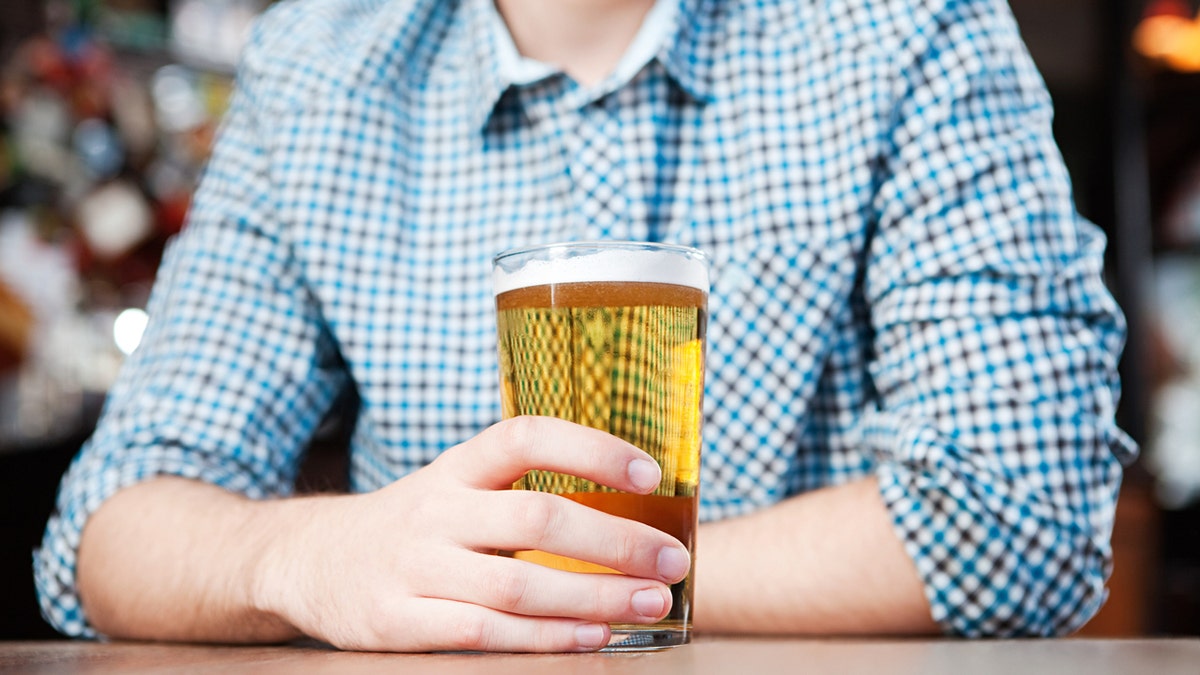Alcohol linked to 7 types of cancer
Dr. Nicole Saphier joins ‘America’s Newsroom’ to discuss the surgeon general pushing for cancer warning labels on alcohol and the CDC warning of norovirus cases surging in parts of the U.S.
NEWYou can now listen to Fox News articles!
Even small amounts of alcohol consumption could put older adults at a higher risk of dementia.
That’s according to a recent study led by the University of Oxford in the U.K. — in collaboration with Yale University and the University of Cambridge in the U.K. — which analyzed data from more than 500,000 people drawn from the UK Biobank and the U.S. Million Veteran Program.
They also analyzed data from over 2.4 million participants across 45 studies to determine any link between the genetically predicted likelihood of alcohol consumption and alcohol use disorder to dementia risk, according to an Oxford press release.
JOE ROGAN GAVE UP DRINKING ALCOHOL FOR THIS ONE SIMPLE REASON
This helped them assess whether alcohol itself could potentially be a direct cause, rather than just being associated with the condition.
“Using a newer genetic analysis, we found even small amounts of alcohol consumption appear to increase dementia risk,” lead study author Dr. Anya Topiwala, consultant psychiatrist and senior clinical researcher at Oxford Population Health, told Fox News Digital.

Even small amounts of alcohol consumption could put older adults at a higher risk of dementia, a new study suggests. (iStock)
Greater alcohol intake was linked to higher dementia risk, the researchers found. This suggested that any level of alcohol consumption increases the chances of cognitive decline, “with no evidence that drinking alcohol may have a protective effect.”
The researchers concluded that people who had a “doubled increase” in genetic risk of alcohol use disorder had a 16% higher risk of dementia.
Additionally, those who consumed a “three times higher” increase in weekly alcoholic drinks had a 15% greater dementia risk.
DRINKING ALCOHOL CAN LEAD TO OTHER SUBSTANCE USE, ADDICTION EXPERTS WARN
The study is published in BMJ Evidence-Based Medicine.
These findings challenge the common belief that low levels of alcohol are beneficial for brain health, according to Topiwala.
“We have previously done brain imaging studies showing harmful brain outcomes at low drinking levels.”
“Genetic evidence offers no support for a protective effect — in fact, it suggests the opposite,” she said in the release. “Even light or moderate drinking may increase the risk of dementia, indicating that reducing alcohol consumption across the population could play a significant role in dementia prevention.”
Dr Joel Gelernter, professor at Yale University and senior author of the study, added that these findings about the relationship between alcohol and dementia have “clinical implications.”
HE CARRIES THE ALZHEIMER’S GENE BUT NEVER GOT THE DISEASE — SCIENTISTS WANT TO KNOW WHY
“There was a time when medical knowledge seemed to support that light drinking would be beneficial to brain health, and this work adds to the evidence that this is not correct,” Gelernter said in the release.

The study strengthens the argument for public health efforts to reduce alcohol use across the population, according to the researchers. (iStock)
This study strengthens the argument for public health efforts to reduce alcohol use across the population, according to the researchers.
“We have previously done brain imaging studies showing harmful brain outcomes at low drinking levels,” Topiwala told Fox News Digital.
CLICK HERE TO GET THE FOX NEWS APP
There were some limitations to the research, the authors acknowledged.
“Individuals in the U.K. study are more wealthy and healthy and less ethnicity diverse than the wider U.K. population,” Topiwala noted. “The U.S. sample were military veterans, so again, they may not be representative of the wider population.”

The researchers analyzed data from over 2.4 million participants across 45 studies to determine any link between the genetically predicted likelihood of alcohol consumption and alcohol use disorder to dementia risk. (iStock)
“Alcohol intake for the most part was self-reported, and some people may underestimate or inaccurately recall their drinking,” she added.
The researchers also noted that the results reflect the effects of alcohol over a lifetime rather than changes made later in life. Additionally, the analysis was less precise at very low drinking levels, which makes it harder to confirm whether small amounts of alcohol might be safe.
CLICK HERE TO SIGN UP FOR OUR HEALTH NEWSLETTER
“Our findings highlight the importance of considering reverse causation and residual confounding in studies of alcohol and dementia, and they suggest that reducing alcohol consumption may be an important strategy for dementia prevention,” the authors concluded.
Topiwala added, “We hope that the study will inform people of the potential brain risks of drinking so they can make their own decisions about how much risk they are willing to take.”

“Using a newer genetic analysis, we found even small amounts of alcohol consumption appear to increase dementia risk,” the lead researcher said. (iStock)
The study was supported by funding from the Department of Veterans Affairs Office of Research and Development, a grant from the Million Veteran Program, and the VA Cooperative Studies Program.
“The genetic analysis the authors highlight is still an emerging methodology in alcohol research and should not be confused with the level of evidence that would come from a randomized controlled trial,” Jennifer Tujague, chief scientist of the International Alliance for Responsible Drinking (IARD) in Washington, D.C., said as part of a statement to Fox News Digital.
TEST YOURSELF WITH OUR LATEST LIFESTYLE QUIZ
“The broader evidence shows risks from alcohol are complex and depend on level and pattern of drinking. We stress that alcohol is not risk-free, and we do not recommend anyone drink for health benefits.”
“The broader evidence shows risks from alcohol are complex and depend on level and pattern of drinking.”
Amanda Berger, SVP of science and research for the Distilled Spirits Council in Washington, D.C., pointed out that the observational study relied on “non-generalizable samples of U.S. veterans and middle-aged British adults.”
She also pointed to previous studies that concluded “there was not sufficient evidence that moderate drinking increased the risk of neurocognitive decline, compared to never drinking.”
CLICK HERE FOR MORE HEALTH STORIES
For adults who choose to drink, the Dietary Guidelines for Americans recommend limiting alcohol to two drinks or less per day for men and one drink or less for women, according to Berger.
“Individuals should speak with their health providers about alcohol to determine what is best for them, based on personal risk factors, such as family history, genetics and lifestyle,” she added.
